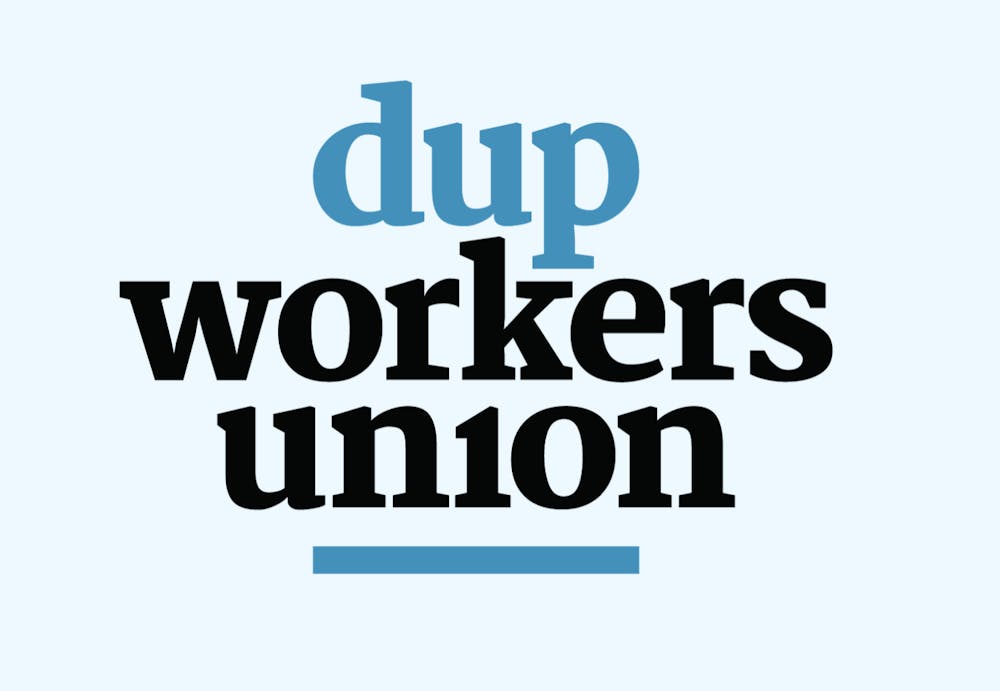After seven months, achieving legal certification for the Duke University Press Workers Union isn’t yet a reality.
In early October, the National Labor Relations Board ruled to overturn Duke and DUP leadership’s objections to an election to certify the DUP Workers Union. Now, in what the union is calling a “time-wasting tactic,” DUP leadership is appealing the NLRB’s ruling.
The election, held in late June, resulted in a preliminary majority of 35 in favor of unionizing, 31 against, discounting eight challenged ballots. Lawyers representing the University, however, objected to the election, citing administrative and technical issues, and petitioned the NLRB for a re-run election.
On Aug. 30, the NLRB completed a hearing to determine whether a new election should be held. Of the challenged ballots, five were dropped before the hearing.
The hearing officer recommended overruling all of Duke’s objections to the election and the three remaining ballots Oct. 1. Two weeks later, however, lawyers representing the University and DUP leadership filed an appeal to the NLRB Regional Director, requesting they pass over the hearing officer’s recommendations and sustain the challenges to the election and ballots.
The DUP Workers Union argued that the challenges were correctly overruled, describing Duke’s appeal “as a fourth quarter ‘Hail Mary’ play amid its concern that it may have lost the union election” in a brief to the NLRB, according to Ben Kossak, an editorial associate at DUP.
“The employer prays that a second election … would yield a more favorable result than the bargaining unit employees’ majority vote in favor of [unionizing],” the brief continued.
DUP Director Dean Smith did not respond to a request for comment.
But employees against unionizing say the appeal makes sense, considering how close the vote count is.
Union members anticipate a win with a count of 38 in favor, 36 against, “assuming the remaining ballots are what Duke expects them to be,” Kossak wrote in an email.
“Just two of the objections could swing the decision either way. [Duke and DUP leadership’s appeal] is certainly a justifiable move,” wrote George Black, a data administration analyst at DUP. “I would fully expect the union supporters to file every objection possible if the tables were turned.”
Tensions ran high among DUP workers in the weeks leading up to the June election, according to Kossak. But since then, he said, “things internal to the press have been pretty quiet.”
Black disagreed, saying tensions are still high, just less public-facing. According to him, the union has portrayed themselves as speaking for all DUP workers on public channels, while ignoring requests from anti-union workers to discuss and debate unionization in a dedicated forum.
Bargaining plans
“We’ve been in a holding pattern, waiting to see and waiting for bargaining,” Kossak said. “It’s been tough being in this kind of limbo space where we feel like we can’t really move forward with planning for bargaining until we know that we are certified.”
Concerns among employees include low pay, high turnover and frustrations with leave policies. Union members hope to negotiate a $45,000 pay floor for all employees at DUP. They also look to match some of the Duke Faculty Union’s contract, which includes up to one month of paid medical leave and an additional nine weeks of parental leave.
The union is considering other ideas about the “dignity of work,” Kossak said. One potential demand is a policy that requires job vacancies be posted within one to two weeks. Another is that any DUP employee who applies for a job vacancy within the organization should get an interview as a courtesy.
“We’ve had a lot of problems with people who feel like they’re stuck in their careers,” he said. “It can be frustrating and honestly insulting to apply for a job that you know and are familiar with.”
‘Ready for this to be over’
The union expects a ruling from the NLRB regional director in the next few weeks. Following the regional director’s decision, either party may then appeal to the five-member NLRB in Washington, D.C.
Get The Chronicle straight to your inbox
Sign up for our weekly newsletter. Cancel at any time.
“I think everybody in [DUP] is ready for this to be over,” Kossak said. “We’re looking forward to being able to start discussing the stuff that actually affects our lives at [DUP].”
But Black isn’t sure legal certification means the end of staff division over unionization. Regardless of which group wins, the results will be tight, which may lead to “continued challenges from whichever side loses this first struggle,” Black wrote.
Enough workers oppose unionizing, he said, that even if the union is certified, there could be another vote to decertify the union.

Milla Surjadi is a Trinity junior and a diversity, equity and inclusion coordinator of The Chronicle's 119th volume. She was previously editor-in-chief for Volume 118.

